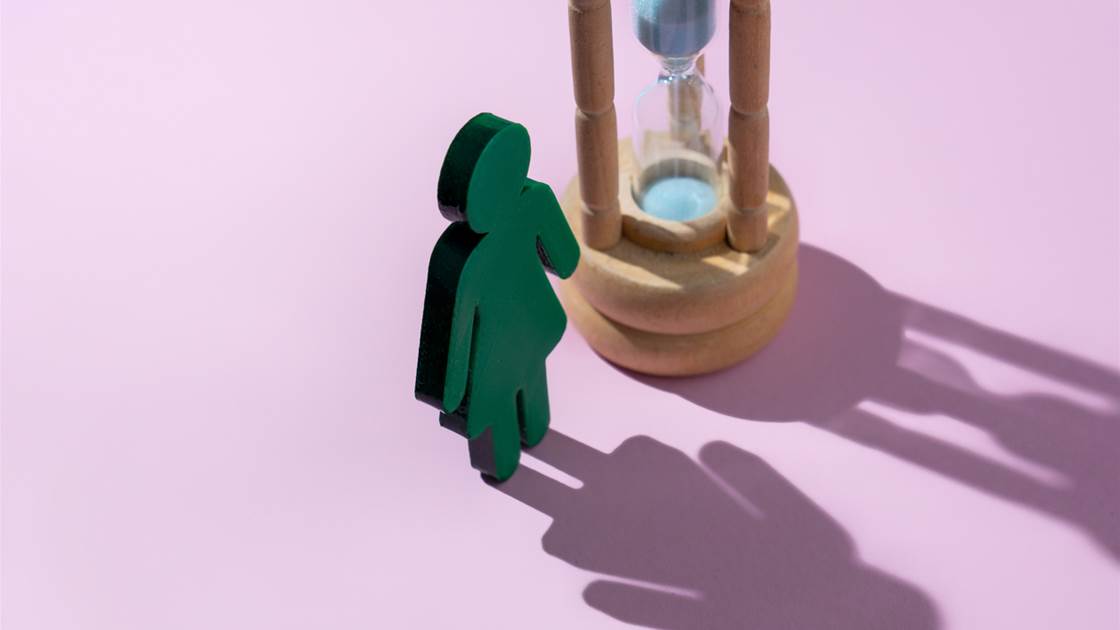Menopause is a major health milestone that can shape your wellbeing. While the spotlight often lands on hot flushes, this phase can affect many parts of your body.
Every person’s experience is different, but it helps to know what menopause does—or can do—to your body. “Every system in the body is impacted,” says gnaecologist Dr Adi Katz.
Changes usually arrive gradually, so you won’t notice everything at once. And while menopause is confirmed after 12 consecutive months without a period, “it’s not just about the period,” Dr Katz says.
With that in mind, here’s how menopause can impact your body, from your reproductive system to your muscles.
What is menopause?
Menopause is the point in life when periods stop. It’s confirmed after 12 months without bleeding. During this time the ovaries produce far less oestrogen, a hormone that helps regulate the menstrual cycle. There’s a wide normal range for timing, though on average it happens around age 51.
What does menopause do to your body?
Menopause can touch almost every system in the body, with some changes more noticeable than others, says obstetrician-gynaecologist Dr Jennifer Wider. Here’s what may shift.
The reproductive system
Once you reach menopause you can no longer conceive naturally, Dr Wider explains. The ovaries stop releasing eggs and periods cease. “It is the end of ovarian function,” says Dr Katz.
Vaginal dryness is also common as natural lubrication drops, Dr Wider notes. Dr Katz adds that an over-the-counter lubricant or a low-dose vaginal oestrogen cream can help.
The endocrine system
The endocrine system is a network of glands that produce and release hormones. Two of those hormones—oestrogen and progesterone—decline significantly during menopause, Dr Wider says.
“Hot flushes and mood swings are often the result of hormonal decline,” she says. These shifts can also influence insulin sensitivity—the body’s ability to respond to insulin, the hormone that helps move glucose into cells for energy. “That can affect where fat gets deposited in the body and energy levels,” Dr Katz says.
The central nervous system
Shifts in hormone levels can trigger a range of central nervous system symptoms, Dr Wider says. That can include sleep changes, mood disturbances, memory lapses and mental fog. “A lot of patients complain of insomnia,” Dr Katz says. Trouble sleeping may be tied to hot flushes, but can also stem from hormonal changes, she says.
Research suggests women face a higher risk of depression during perimenopause than before this life phase.
Your excretory system
The excretory system handles waste removal and involves the kidneys, bladder and large intestine.
“A decrease in oestrogen often results in frequent urination and in some cases, incontinence,” Dr Wider says. “Oestrogen has a direct effect on the pelvic floor muscles, which can become weaker and less elastic during menopause.”
You may also find you’re waking overnight to urinate when you didn’t need to before, which can further disrupt sleep.
The cardiovascular system
Oestrogen helps protect blood vessels and the heart, Dr Katz says. “But once it’s gone, the risk of cardiovascular disease for women is as high as the risk for men,” she says.
A woman’s risk of heart disease increases during and after menopause, Dr Wider says. “We also tend to see an elevation of cholesterol in the blood,” Dr Katz says.
The skeletal system
Bone density declines during menopause, Dr Wider says. Oestrogen plays an important role in bone health, Dr Katz explains. “That puts women at a higher risk for bone thinning and fracture,” Dr Wider says. Women are more likely to develop osteoporosis during this time too, Dr Katz says.
The muscular system
You may lose muscle mass at a higher rate during menopause, Dr Katz says. Again, it’s mostly due to the drop in oestrogen. The good news: regular exercise and strength training can help counter that.
What to do if you suspect you’re in menopause
Doctors stress there are treatments available, from medicines to lifestyle changes. “Exercise helps to stabilise hormones and promotes muscle strength and tone—that’s one thing everyone can do,” Dr Katz says. “It’s also protective for the heart.” She recommends doing what you can to eat more oestrogen-rich foods too, like soy, flaxseed and nuts.
Dr Katz also suggests talking to your GP about whether you might benefit from a calcium supplement for bone health. Finally, she points out there are several forms of hormone therapy that can help manage common symptoms of this life stage.
If you think you’re in menopause, book a check-in with your GP or specialist to discuss what’s happening in your body and the best next steps to protect your health and keep you comfortable.



.jpg&h=90&w=90&c=1&s=1)




.png&h=193&w=250&c=1&s=1)
.png&h=193&w=250&c=1&s=1)
